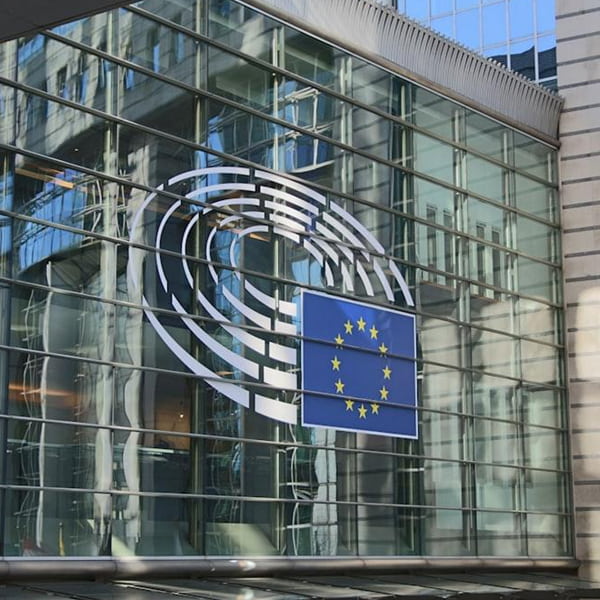The first measure of this tremendous size aimed at establishing risks and imposing strict rules on the usage of Artificial Intelligence (AI) in the business area and beyond has just received the last nod in the European Parliament. Now, new legislation is being crafted around emerging tech products and programs, crystallizing perplexing matters in a somewhat dumbfounding industry and bringing newness like the “sandbox” framework overseeing enterprises ranging from unicorns to big companies to SMEs.
The latest events are finally paving the way for effective rules to be enacted and enforced to offer more protection to online landscape utilizers, especially individuals yet to come of age. Nevertheless, regarding oversight, the whole operation is still in its developmental stages, and entities charged with oversight have to be designated.
Under the new AI Acts, numerous changes will be made, such as the inclusion of bans applicable when specific AI Act rules are broken and violated. High-risk systems are bound to face more severe regulations before breaking into the EU market, and more modifications and amendments are at the dawn of emerging. To date, we’re still in the infant stages, expecting to see a long streak of rules and modifications present to the already-existing ones, as well as services and authorities responsible for helping the targeted entities fine-tune according to upcoming standards.


Sandboxing emerges as the key to safe AI leveraging
Evidently, implementing and adjusting previous working processes, upskilling staff, and putting up with any unpreventable mishap is no easy feat at the beginning of the AI-regulated era. To prevent fragmentation across the EU nations, an act is to be adopted and executed that regards the settlement, advancement, implementation, and supervision of the emerging regulatory sandboxes.
These are programs breaking in to help entrepreneurs and business owners to test and sample fresh merchandise and services, keeping in touch with regulatory bodies simultaneously.
Sandboxes ought to assist in the creation of infrastructure and programs to test, monitor, assess, benchmark, and explain different elements and dimensions of the AI realm pertinent to regulatory learning. Several areas, such as cybersecurity, robustness, and accuracy, together with measures to alleviate threats and eliminate obstacles to fundamental rights, are to be tackled and subjected to emerging strategies for safe policy development.
Individually, businesses can already proceed in this journey by collaborating with partners specialized in providing them the best solutions and advice in areas like B2B market research to better understand all the aspects of expanding AI-powered solutions. Reaching out to these experts it’s easier than ever with the multiple opportunities available, such as the expertise of agencies with long history on the market. For those looking for immediate action, professionals from Savanta offer b2b services and have an office in London so that businesses can take the matter into their own hands right about now.
Potential participants in the sandboxing system, like start-ups and small and medium-sized enterprises, the latter of which account for 99% of the European businesses, are bound to be steered in the direction of emerging pre-deployment services. The point is to help first-movers and those that follow in implementing the new rules, as well as build on the accumulated knowledge from assisting services like Centres of Excellence in order to adapt appropriately to the new AI-oriented business landscape.
There are crucial 12 months ahead
Member states of the European Union are offered a year’s time to designate nominees for the designation of authorities responsible for compliance at the national level. Mentioned as Digital Services Coordinators, these will be tasked with implementing and enforcing the Digital Services Act across nations, a measure mainly aimed at removing illegal content, goods, and services.
DSA guarantees that the new principles overseeing content genuineness launched by the denominated administrative or judicial authorities can be efficiently and unhinderedly introduced, especially in cross-border contexts. Simply put, numerous online businesses and platforms will have to introduce new large-scale guidelines and measures overseeing the whole organization in order to keep counterfeit and illicit services, goods, and content away.
Similarly, minors are covered by a special section regarding their protection in online realms. Those yet to come of age must be protected through different measures that raise the security, safety, and privacy levels for minors who access their apps and sites.
New, more potent waves of AI adoption are on the horizon
Lack of budget for upskilling, implementing tech developments, building or fine-tuning tech infrastructure, and conducting other operations to leverage the AI wave has long kept EU businesses from leaping into the emerging systems. Tech adoption, stranded by budgetary restrictions, is now witnessing a turn of events as authorities are setting up the groundwork on which businesses can thrive through AI-based solutions. AI technologies are getting easier to be adopted, understood, learned, integrated into operations, and reported to officials.
To date, over a third of EU businesses have implemented AI solutions into their operations, with over one-third of companies using these technologies in 2023. As expected, the communication and information sectors are those where AI thrives the best, followed by transportation and manufacturing.
Several improvements were noticed that encourage more and more businesses to break into AI. These improvements ultimately boil down to better transportation, increased decision-making, achieving sustainability goals, and more efficient manufacturing, and the list doesn’t end here. AI has brought about trailblazing systems and tools, such as drones, self-driving vehicles, autonomous robots, virtual assistants, facial recognition technologies, and image recognition software, among others.
From text mining to speech recognition to natural language generation, self-employed persons and employees derive numerous advantages from using AI. Now that the framework under development is about to be launched and assisted in implementation, we expect more giant adoption waves in AI tech among businesses of various types and sizes.
Small businesses could need more help
Minor enterprises could be the most challenged by the changes to follow. SMEs are the leading force behind groundbreaking tech movements in Europe. Yet, it’s safe to say that they have a difficult time dealing with limitations and threats like high compliance costs, unsustainability, difficult fine-tuning, and other inescapable modifications they need to make at the whole organizational level. Furthermore, there are also emerging fears of overregulation, making the system all the stricter.
The newly enacted AI Act will create a highly comprehensive regulatory framework that is bound to have the weightiest effect on the smallest of businesses, which are often not financially capable of carrying out all the hefty operations to get to use AI tech as they wish.
The European market could be on its way to enhanced security. For instance, a company’s product emerging into the market will have to fulfill a plethora of requirements to be listed there.
















